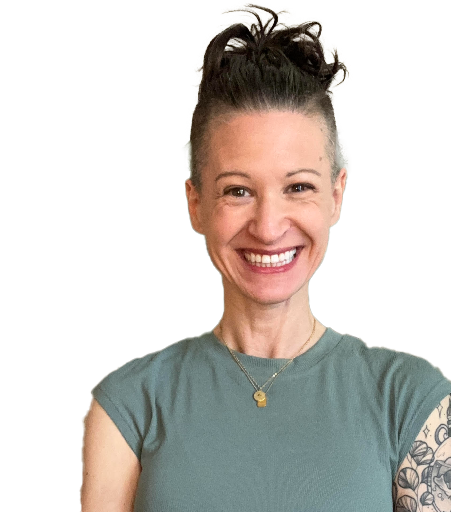Member Spotlight: Becca Tagg
Meet Becca Tagg
Executive Director of Del Mar Center for Behavioral Health, a CASP member organization
Biography
 Dr. Becca Tagg is executive director of Del Mar Center for Behavioral Health, a multidisciplinary clinic in southeastern North Carolina near Camp Lejeune. She has formal training in school and clinical psychology, psychopharmacology, and behavior analysis. She is licensed as a psychologist, as a medical (prescribing) psychologist, and as a behavior analyst. She has worked in a variety of settings from schools to hospitals and military installations and also provides consulting to organizations. Her clinical practice focuses on diagnostic testing, medication management, maternal mental health, treatment of trauma and anxiety-based disorders, and providing supervision for future behavior analysts and psychologists.
Dr. Becca Tagg is executive director of Del Mar Center for Behavioral Health, a multidisciplinary clinic in southeastern North Carolina near Camp Lejeune. She has formal training in school and clinical psychology, psychopharmacology, and behavior analysis. She is licensed as a psychologist, as a medical (prescribing) psychologist, and as a behavior analyst. She has worked in a variety of settings from schools to hospitals and military installations and also provides consulting to organizations. Her clinical practice focuses on diagnostic testing, medication management, maternal mental health, treatment of trauma and anxiety-based disorders, and providing supervision for future behavior analysts and psychologists.
Interview
Tell us about Del Mar Center for Behavioral Health. What are you most proud of?
Del Mar Center for Behavioral Health is a multi-specialty practice in southeastern North Carolina. I'm proud of many things about Del Mar and will share two of those here. One is that I'm immensely proud of our Clinical Residency training program for graduate students in behavior analysis which has been featured in different ways within our profession. Teaching and supporting the next generation of behavior analysts comes at a high cost. The same thing can be said, however, of not doing it well.
As Dr. Tyra Sellers is famous for her "unicorns and zombies" analogy of supervision, we are proud to be participating in the creation of unicorns who will spread their impact across their careers, like the rings that spread across a body of water after throwing a rock in.
Second, we are located in Jacksonville, NC, home of Marine Corps Base Camp Lejeune and Marine Corps Air Station New River. Marine Corps Air Station Cherry Point is also about an hour away. Whether providing therapy, ABA, or other services for military connected individuals or through employing military connected team members, we are incredibly proud to serve those who serve.
What, in your opinion, is the single biggest challenge faced by autism service providers today?
There are many challenges faced by today's providers who serve individuals and families diagnosed with autism. The largest one, from my standpoint, is the sheer demand and need. This can, and I believe has, led to there being more variability and less consistency in services across providers. This creates significant challenges in many ways particularly around continuity of care for identified patients, but also for those working in systems of care that support those with autism and their experiences can vary drastically from one organization or provider to another. This then leads to greater difficulties for payers or other stakeholders as it's challenging to make decisions when there's such variability.
What's the long-term plan for Del Mar Behavioral Health?
We hope to continue to provide high quality clinical services to those who seek it across multiple disciplines and to those who have a diagnosis of autism as well as other diagnoses. We hope to continue to employ those who are committed to learning not only about autism, psychology, medicine, speech and language, and other areas, but also about themselves as when we serve others, we must be aware of our own biases and our own "stuff" that we bring into the room. It's a normal part of being a human and can become dangerous or increases the risk of doing harm when we are not aware of what we bring into the room as far as culture, privilege, and power.
As an autism service provider, what have you found to be the biggest benefit of CASP membership?
There are numerous benefits to CASP. It truly is some of the best money we spend and has been since 2020. I'm not sure that we would have made it through 2020 without the consistent efforts of CASP. Being a small, clinician owned company, CASP makes certain advocacy and involvement opportunities accessible that would not be otherwise. CASP provides community and community is a balm of healing in many ways. The challenges of humaning with other humans is not so much what happens to us, but going through it alone. CASP ensures that CASP members are not in it alone.
When you're not working, what do you like to do for fun?
I am beyond fortunate to love the work that I get to do and to truly consider it fun. Outside of work, I enjoy yoga, taking care of my collection of houseplants, volunteering in the community, and engaging in activities that nourish my creative spirit.


